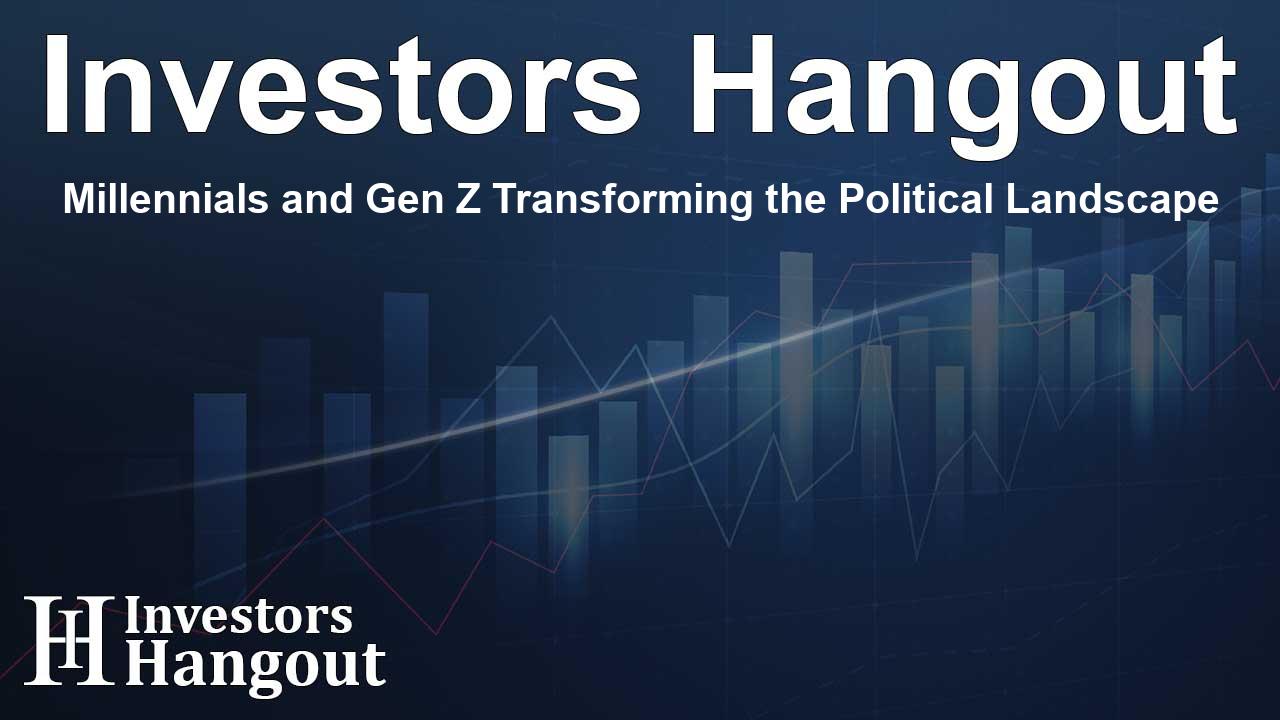Millennials and Gen Z Transforming the Political Landscape

Young Candidates Reshaping U.S. Politics
More young Americans are stepping into political roles, with a notable percentage of congressional candidates in 2024 representing millennials and Gen Z. A recent report highlights that around 25% of these individuals fit into these younger generations, showcasing an upward trend in youth participation in politics.
The Significant Rise of Young Candidates
The report titled On the Rise 2024 reveals an exciting contrast to the narrative that young people are disengaged from political movements. Between 2020 and 2024, there has been a remarkable 79% increase in millennial candidates, signifying a passionate engagement with public service among younger voters. This significant rise indicates an eagerness to assume leadership roles and influence the political landscape directly.
Youthful Energy in Congress
Young candidates are not only emerging on ballots but are also having a major impact within state legislatures, where 40% of bipartisan bills were driven by Gen Zers and millennials. Yet, interestingly, these groups only constitute 25% of state legislators. This reality underlines the potential they hold as they move towards Congress, as evidenced by the over one-third of current state legislators on the ballot being millennials.
Challenges and Changes Ahead
The report acknowledges the various hurdles young candidates encounter, such as withdrawals and losses during primary contests; however, their influence in shaping the future of governance is undeniable. As these generations of leaders evolve, they aim to challenge toxic partisanship that has long characterized American politics.
An Evolving Political Landscape
In her statement, Layla Zaidane, the president of Future Caucus, emphasized the distinct, pragmatic approach that younger leaders bring to public service. Their creativity and commitment to collaboration across party lines are vital assets as they work to overcome the challenges faced by their constituents. This new wave of leadership is set to break down entrenched partisan divides and restore trust in democracy.
Key Findings of the Report
This report reveals several critical findings regarding the youth movement in politics:
- Approximately one in four candidates in 2024 are from the millennial or Gen Z demographic.
- From 123 millennial candidates in 2020, the number surged to 220 in 2024, marking a 79% increase.
- Among the 33 state legislators standing for Congress in November, more than one-third are millennials.
- Within the millennial candidates, 30% are women, contrasted with only 19% of Gen Z candidates.
- Disproportionate eliminations of younger candidates occurred prior to the general elections.
- No single political party dominates any specific age group.
Looking Forward
With nearly 30% of these candidates opting for alternatives beyond the traditional two-party system, we may be on the cusp of a significant transformation in the American political landscape. As younger generations seek leadership roles, they challenge conventional norms of party allegiance and voting behaviors, setting the stage for a fresh approach to solving societal issues.
To learn more about Future Caucus and their initiatives to uplift young leaders, individuals can reach out to connect and explore collaborative opportunities.
Frequently Asked Questions
What is the main focus of the On the Rise 2024 report?
The report highlights the increasing number of younger candidates, specifically millennials and Gen Z, entering political races for Congress.
How many millennial candidates are there in 2024 compared to previous years?
There has been a significant rise, from 123 millennial candidates in 2020 to 220 in 2024, which represents a 79% increase.
What are some challenges faced by younger candidates?
Younger candidates often experience higher withdrawal rates and losses in primary elections, along with navigating a competitive political landscape.
How do young leaders impact bipartisan legislation?
Despite only making up 25% of state legislators, young leaders spearheaded 40% of bipartisan bills in recent years.
What future changes might occur in U.S. politics due to these young candidates?
The emergence of significant youth representation may lead to reforms in political loyalty, engagement, and a focus on addressing pressing social issues.
About Investors Hangout
Investors Hangout is a leading online stock forum for financial discussion and learning, offering a wide range of free tools and resources. It draws in traders of all levels, who exchange market knowledge, investigate trading tactics, and keep an eye on industry developments in real time. Featuring financial articles, stock message boards, quotes, charts, company profiles, and live news updates. Through cooperative learning and a wealth of informational resources, it helps users from novices creating their first portfolios to experts honing their techniques. Join Investors Hangout today: https://investorshangout.com/
Disclaimer: The content of this article is solely for general informational purposes only; it does not represent legal, financial, or investment advice. Investors Hangout does not offer financial advice; the author is not a licensed financial advisor. Consult a qualified advisor before making any financial or investment decisions based on this article. The author's interpretation of publicly available data shapes the opinions presented here; as a result, they should not be taken as advice to purchase, sell, or hold any securities mentioned or any other investments. The author does not guarantee the accuracy, completeness, or timeliness of any material, providing it "as is." Information and market conditions may change; past performance is not indicative of future outcomes. If any of the material offered here is inaccurate, please contact us for corrections.